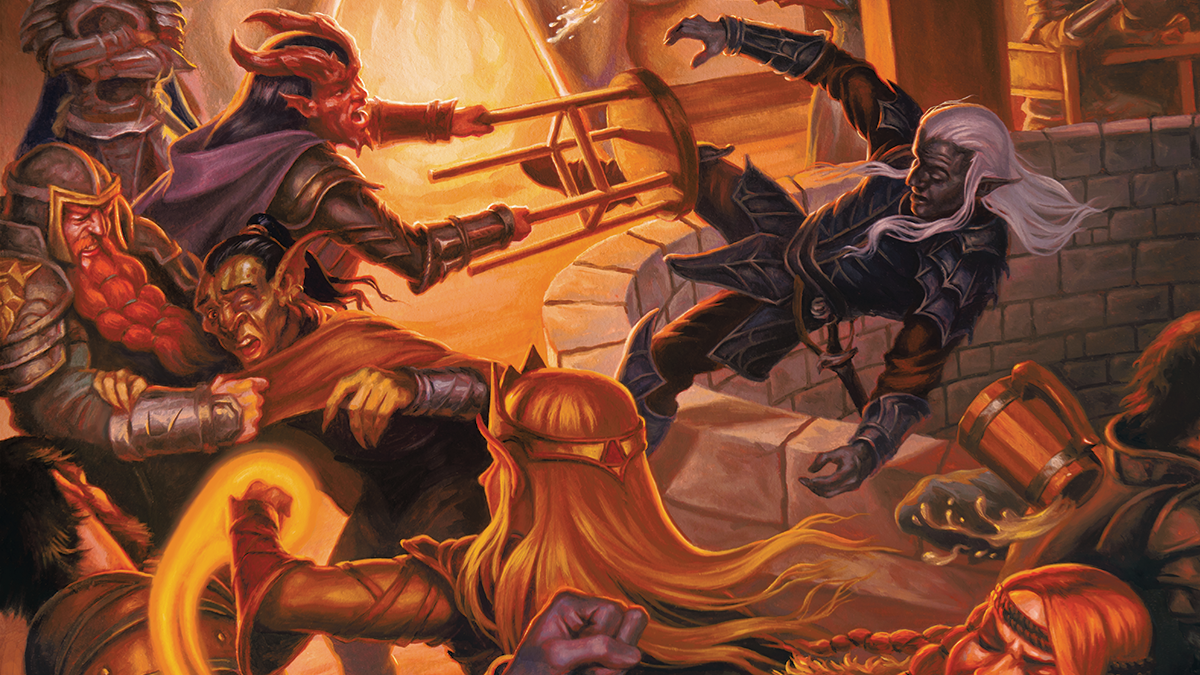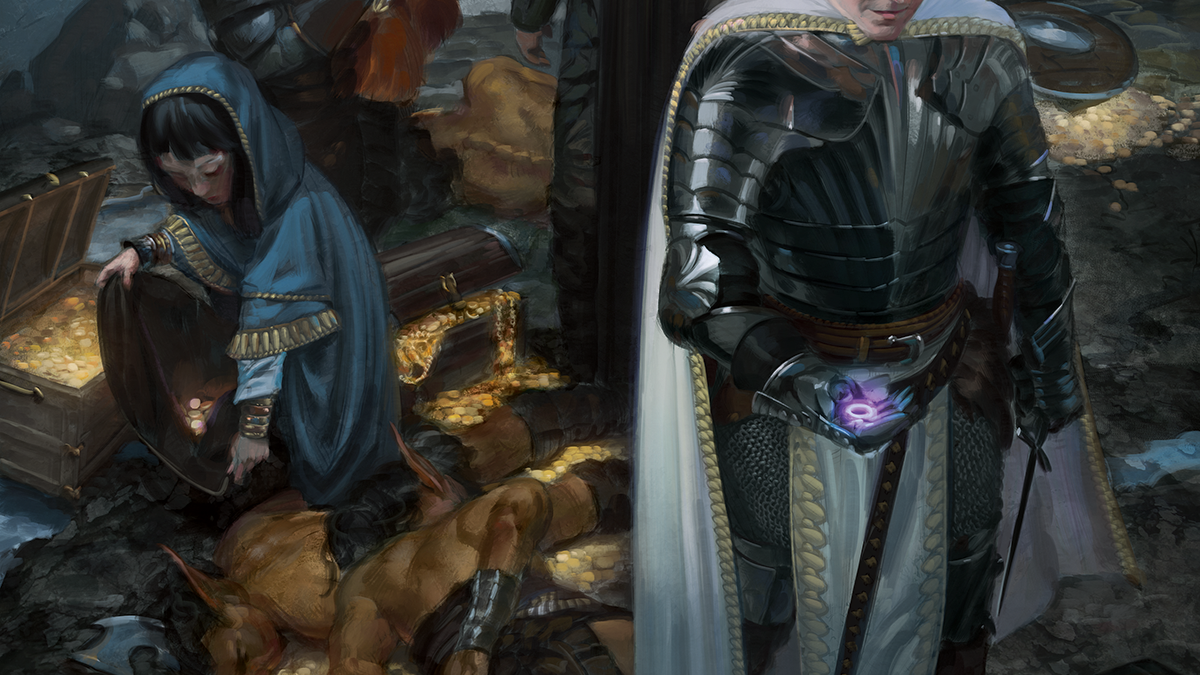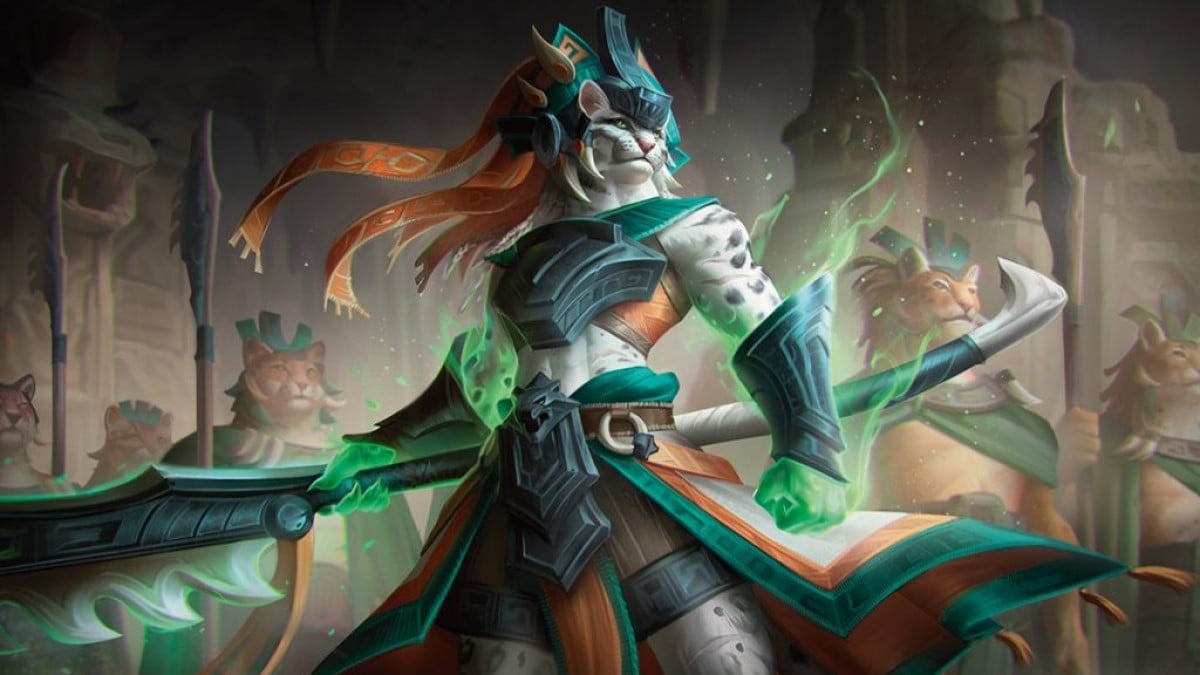Dungeons & Dragons 5th Edition has a turn-based combat system with some conventions to help with finding your place in a fight. One of those conventions, called Initiative, is how 5E asks you to order your turns. Calculating your Initiative can be a bit strange, compared to the many skills in 5E.
A player can only act when their turn arrives on the turn order. A higher number on Initiative allows a character or monster to move first. That’s a gigantic advantage, as the difference between a good and bad roll on the turn order can easily be the difference between destroying your foes or being locked down.
Knowing what you are rolling with is critical, and should be shared with your party quite quickly. Your Initiative Modifier is the most consistent way to increase your turn order’s numerical value. You’re going to be rolling this value quite a lot, as every fight requires every character to roll it. So, how do you figure that out?
How is Initiative bonus calculated in Dungeons & Dragons 5E?
Your Initiative Modifier is, in most cases, your Dexterity Modifier. When you roll for turn order, you roll a d20 + Dexterity Modifier (or – Dexterity Modifier if your Dex is negative). Skill checks do not affect this roll and you cannot become Proficient in it.
Outside of extremely specific cases, you will never add more than your Dexterity modifier to your Initiative. This makes Dex so important for supporting abilities, like from Bards or Sorcerers, since a high turn order count can allow you to lock down a fight or buff allies before enemies have the chance to stop you.
However, some classes would actually prefer to go slightly later. Clerics or healers that roll later are able to restore wounds or status conditions that would otherwise persevere through the turn order and into the next round. On the other hand, if your Healer rolls ahead of you in Initiative while you’re unconscious, then a Healing Word spell can get you back into the fight without missing too many turns.
Monsters also add their Dexterity bonus to a d20 for their Initiative roll, though they can follow different rules than players. Many DMs will group monsters by type—such as Goblin Archers—and have all monsters act on that Turn Order count. And several monster abilities will provide large bonuses to Initiative, or change how the turn order works entirely! Legendary Actions, for instance, allow some monsters to act outside of their Initiative for brief attacks.
How to improve your Initiative modifier in 5E

There are a few methods of adjusting your Initiative, or hampering your opponent’s, in 5E. If you’re looking to permanently increase your Initiative modifier, you have a few options going for you. We’ll order them from most committal to least.
Class levels
- A Level two War Wizard or Chronurgy Wizard applies their Intelligence Modifier to the Initiative roll.
- Bards, at level two, can add half of their Proficiency bonus to any ability check without a Proficiency bonus. That should include Initiative, which is a Dexterity check without a Proficiency bonus.
- Gloom Stalker Rangers, when they get their archetype at level three, add their Wisdom Modifier.
- Swashbuckler Rogues, at level three, add their Charisma modifier.
- Just like Bards, Champion Fighters get half of their Proficiency to Strength, Dexterity, or Constitution checks at level seven.
- Bards’ Jack of All Trades and Champion Fighters’ Remarkable Athlete cannot stack, unfortunately.
Feats
- The Alert feat applies a +5 to all Initiative checks, as well as some bonuses to first round combats and anti-invisibility.
Equipment
- Scorpion Armor is magical armor that improves your roll by +5.
- Stone of Good Luck is a magical rock that applies a +1 to ability checks.
- Minor Magical Properties may give any magical armor or weapon a +2.
- If you are able to get level two in Bard or level seven in a Champion Fighter, an Ioun Stone of Mastery applies a +1 bonus to the roll as well.
- The sentient item Sword of Kas can add a +d10 to Initiative. Other similar magical items may exist in your game’s world to provide a similar bonus.
What magical buffs temporarily improve your Initiative modifier?
Quizzically, there are actually no spells in Dungeons & Dragons 5E that specifically buff or debuff the Initiative Roll. This is likely because, in order to affect Initiative, temporary buffs to stats must be cast before combat begins.
However, the roll is considered to be a Dexterity check, meaning that any spell or ability that improves ability checks that are cast before the first round of combat will also improve your Turn Order roll. For instance, a character that begins combat with a spell like Enhance Ability for the “Cat’s Grace” option will have advantage on Dexterity checks. Or, a character may use Guidance to improve an Initiative roll by 1d4.
Initiative is not affected by any effect that improves Dexterity saving throws. Spells like Haste will not benefit your Initiative at all. Spells like Pass Without Trace also do not buff Initiative, as it only improves Dexterity (Stealth) checks, rather than all Dexterity checks.
How to get advantage on your Initiative roll
Advantage on Initiative takes some of the least commitment of all.
- The Sentinel Shield, Weapon of Warning, and Rod of Alertness all provide advantage. The Sentinel Shield does not require attunement to function correctly, while the other two options do.
- At level 13, the Scout Rogue automatically gains advantage on Initiative.
How to apply disadvantage to an Initiative roll
Just like how we apply magical buffs to allies, we could apply debuffs to enemies to give disadvantage on ability checks. This’ll make them roll twice and take the lower result on their Initiative.
- Bestow Curse, a level three spell, allows you to target Dexterity and make the target have disadvantage on ability checks and saving throws made with that score.
- Hex, a level one spell, allows you to do the same as Bestow Curse with a bonus action and with more range, but is on a much tighter spell list.
- Frightened creatures also make all ability checks with disadvantage.
- Creatures that were Poisoned make all ability checks with disadvantage.
- If a creature is Exhausted, they make all ability checks with disadvantage.
Keep in mind that many of these actions might cause Initiative to roll anyway. If the enemy sees or hears you casting the spell and starts combat while you are casting it, it might be able to dodge the disadvantage on the turn order roll.
Status effects like Poisoned or Frightened might, therefore, be easier to apply before a fight begins. A well-timed Intimidation check or slipping poison into a water supply might work.
Is there any way to get two turns?
Right now, the only way that you can get two turns in 5E is as a Scout Rogue. Its level 17 capstone lets you go twice on the first turn of combat. Funnily enough, because of how Sneak Attack is worded, this does let you sneak attack twice in a turn without well-placed opportunity attacks.












Published: Aug 2, 2023 10:52 am